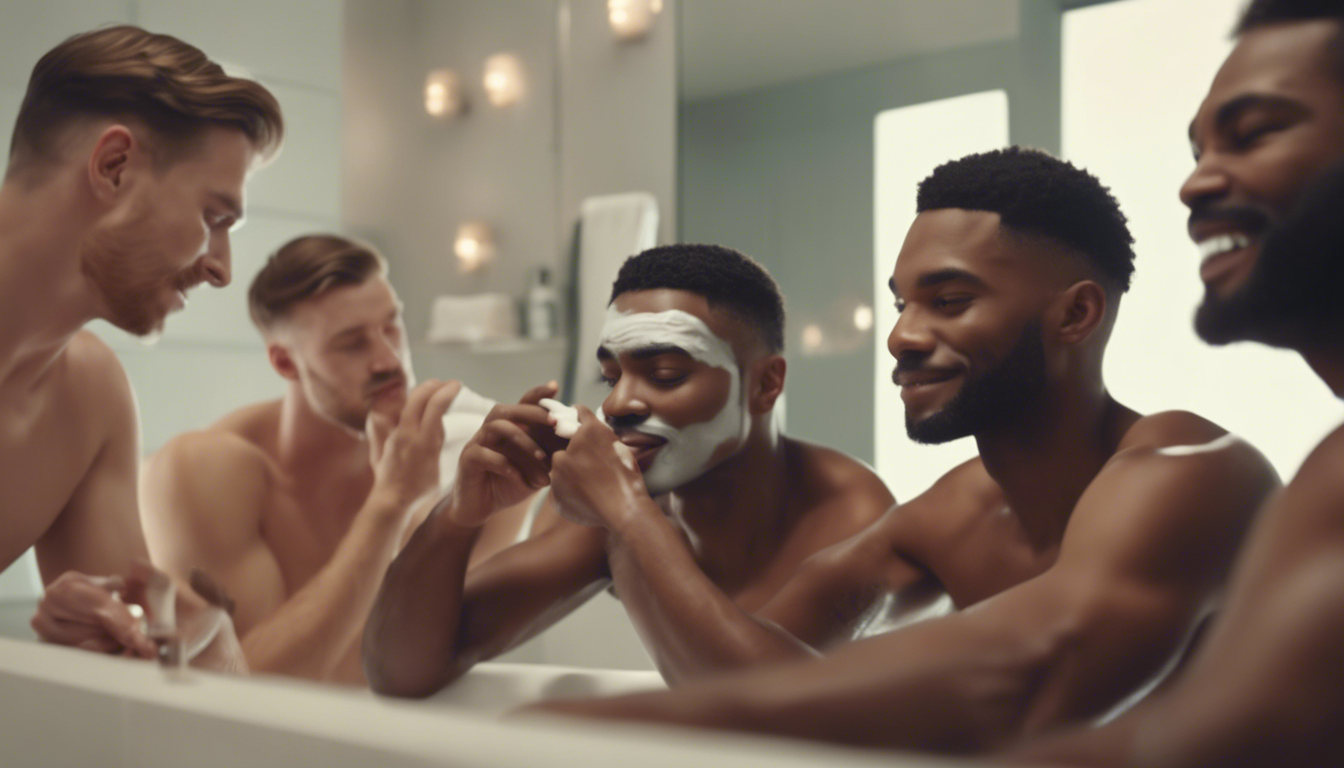The landscape of men’s skincare has evolved significantly over the last decade, with an increasing number of men turning to facial creams to maintain youthful, healthy skin. Historically, skincare was predominantly targeted towards women, but today, the male grooming industry is experiencing a renaissance. Companies are now offering a variety of dermatologically tested products specifically designed for men’s skin, which tends to be thicker and oilier than women’s.
Dermatologically tested creams are formulated based on rigorous scientific research to ensure they are safe and effective for use on sensitive facial skin. These creams can offer a myriad of benefits, including hydration, reduced wrinkles, and protection against environmental pollutants. Dr. James Carter, a leading dermatologist in New York, notes that ‘the right facial cream can significantly alter the appearance of men’s skin, combating both dryness and the premature aging process.’
However, the use of such creams comes with its considerations. While side effects are rare, men can experience reactions if they have particularly sensitive skin or use products not suited to their skin type. Ingredients like fragrances and preservatives, while common in skincare products, can sometimes cause irritation or allergic reactions.
Recent studies are promising, pointing towards innovative formulations that cater to specific needs such as anti-aging or anti-acne. Brands like Nivea and L’Oreal are at the forefront, investing heavily in research to develop advanced skincare solutions. These trials often involve novel ingredients like bio-peptides and natural plant extracts known to benefit skin health.
Geographically, the utilization of men’s facial creams varies widely. In Asia, particularly in South Korea and Japan, men’s skincare routines are quite intensive, and products like facial creams are popular. In contrast, markets like the US and Europe are catching up, driven by a cultural shift towards greater acceptance of men’s grooming practices.
Market offerings in this range vary significantly in terms of price and quality. High-end brands such as Clinique and Kiehl’s offer premium products that promise superior results, often backed by extensive clinical trials. On the more affordable end, brands like Bulldog and Cetaphil provide cost-effective solutions that are still beneficial for skin care.
Furthermore, online platforms and e-commerce sites have made it easier for men to access these products, often accompanied by detailed usage guides and reviews. This ease of access has contributed to a surge in the popularity of these creams across various demographics.
Anecdotal evidence suggests that men who begin using facial creams as part of their daily routines report improvements not just in their skin’s appearance but also in their self-esteem. Celebrities like David Beckham and Chris Evans, who openly discuss their skincare routines, have helped debunk the stigma that traditionally surrounds men’s skincare.
Experts in the field, however, caution against overuse of these products. As per Dermatologist Dr. Lisa Franklin, ‘While incorporating facial creams into daily routines can be beneficial, overuse can lead to clogged pores and diminished skin health. It’s crucial for individuals to consult with skincare professionals to craft a routine that best suits their skin type and needs.’
As research on the efficacy of men’s facial creams progresses, the potential for further refined products grows. Manufacturers are continually exploring new technological advancements to enhance the absorption and effectiveness of active ingredients in creams. The future of men’s facial skincare looks promising, with an ever-expanding range of scientifically backed products custom-tailored to meet the diverse needs of this growing demographic.

